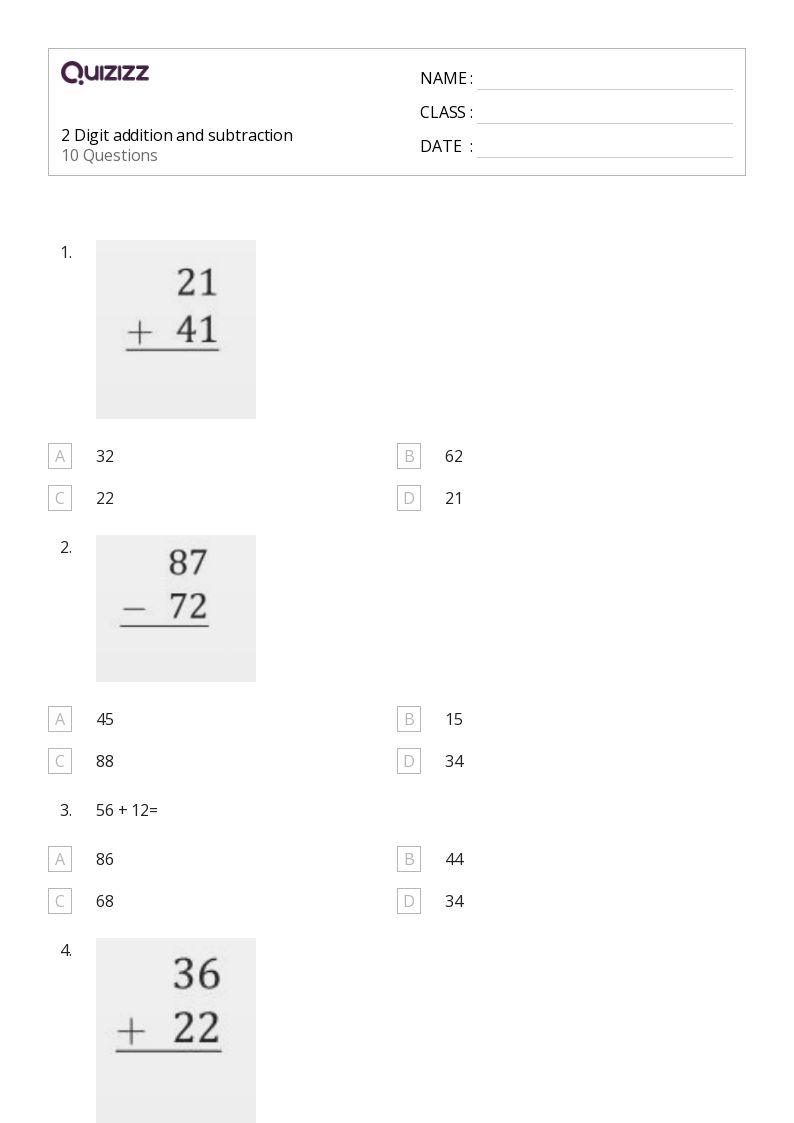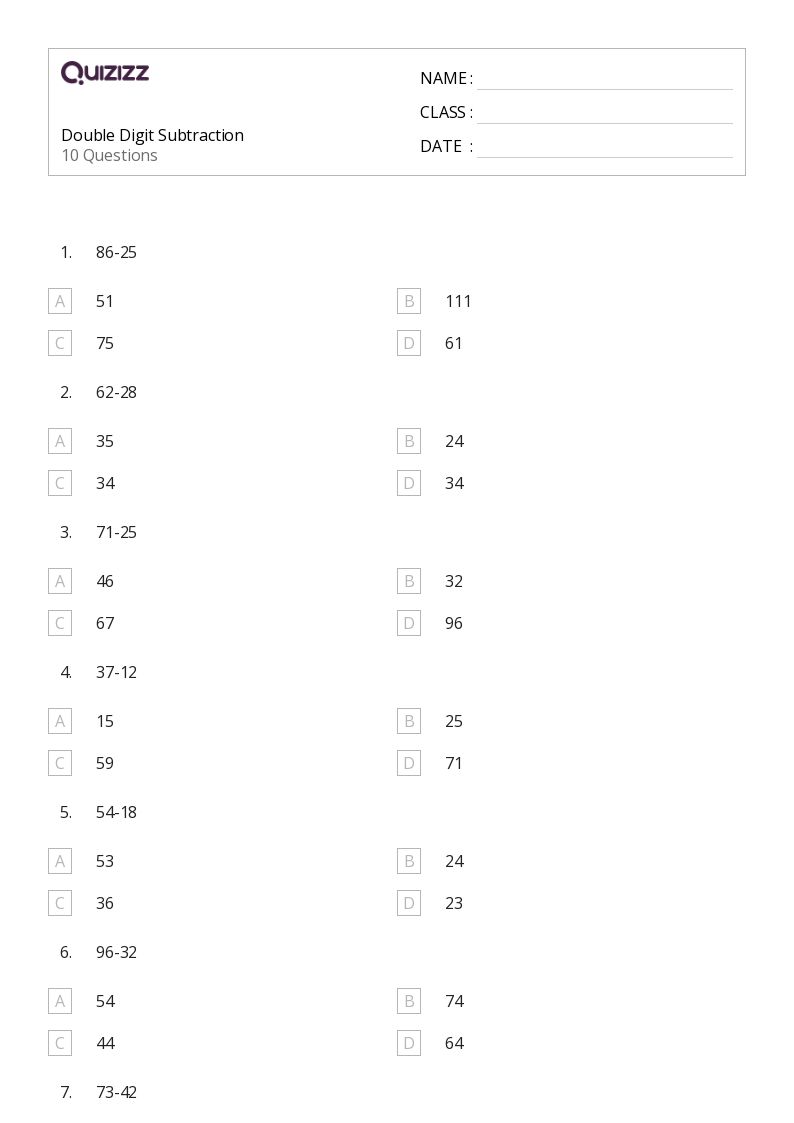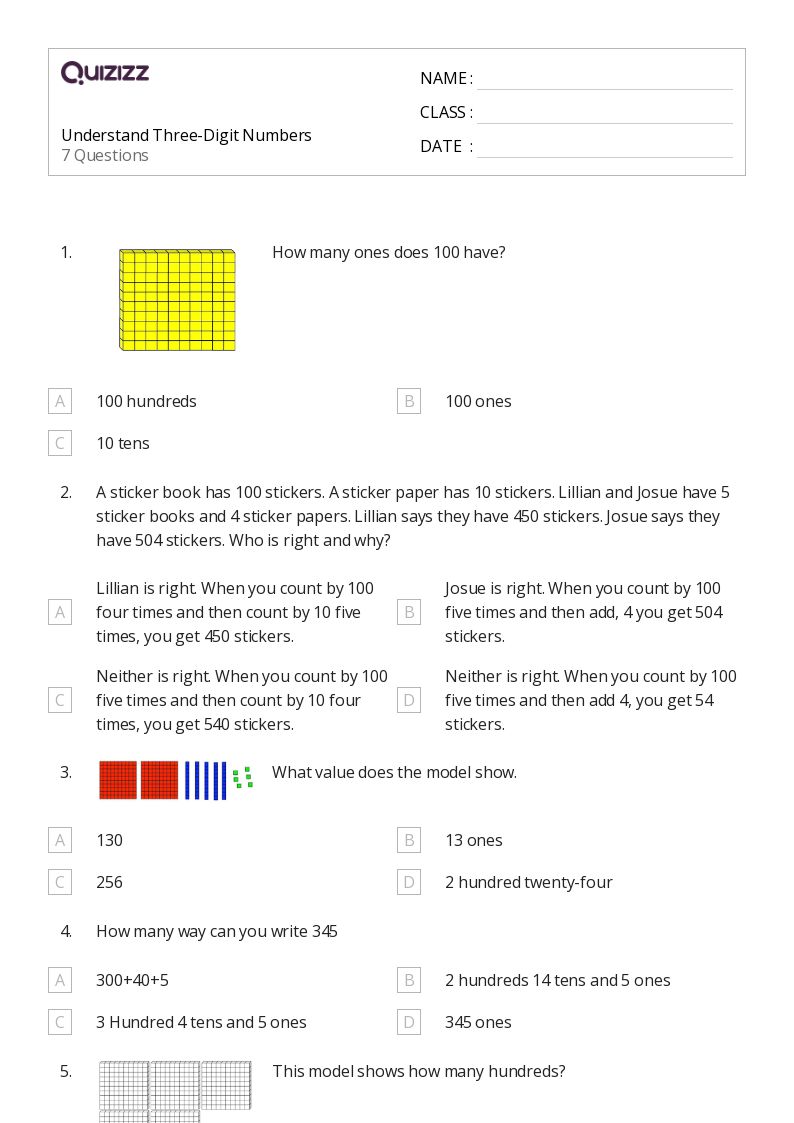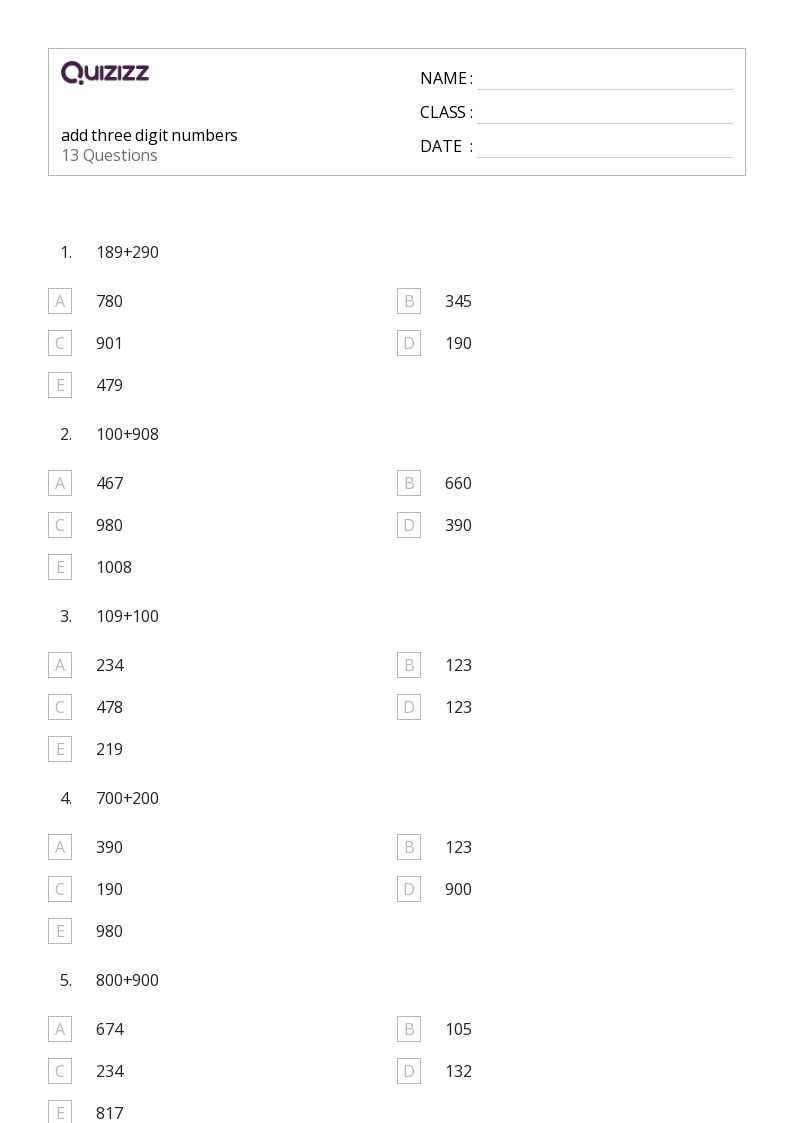
10 Q
1st - 3rd

10 Q
1st - 2nd

15 Q
1st - 2nd

15 Q
KG - 1st

10 Q
1st - 2nd

10 Q
1st

45 Q
1st

8 Q
1st

17 Q
1st - 2nd

10 Q
1st

10 Q
1st - 3rd

10 Q
1st - 3rd

7 Q
1st

12 Q
1st - 5th

10 Q
1st - 2nd

10 Q
1st - 2nd

10 Q
1st

10 Q
1st - 4th

10 Q
1st - 3rd

15 Q
1st

15 Q
1st

7 Q
1st - 2nd

10 Q
1st - 3rd

13 Q
1st - 2nd
Explore Three-Digit Subtraction Worksheets by Grades
Explore Other Subject Worksheets for class 1
Explore printable Three-Digit Subtraction worksheets for 1st Class
Three-Digit Subtraction worksheets for Class 1 are an essential tool for teachers to help their students develop a strong foundation in math. These worksheets focus on the concept of subtraction, specifically multi-digit subtraction, which is a critical skill for young learners to master. By incorporating these worksheets into their lesson plans, teachers can provide a variety of engaging and challenging exercises that will encourage students to practice and improve their subtraction skills. With a wide range of problems to solve, from simple single-digit subtraction to more complex three-digit subtraction, these worksheets cater to the diverse needs of Class 1 students. By regularly using these worksheets in the classroom, teachers can ensure that their students are well-prepared for more advanced math concepts in the future.
Quizizz is an excellent platform for teachers to access a vast array of educational resources, including Three-Digit Subtraction worksheets for Class 1. This platform offers a variety of interactive and engaging activities that can be easily integrated into the classroom, making it a valuable tool for teachers looking to enhance their students' learning experience. In addition to subtraction worksheets, Quizizz also provides resources for other math topics, as well as subjects such as science, social studies, and language arts. Teachers can easily customize the content to suit their specific needs, ensuring that their students receive a well-rounded education. With Quizizz, teachers can effortlessly track their students' progress and identify areas that may require additional support, ultimately helping them to create a more effective and enjoyable learning environment for their Class 1 students.
